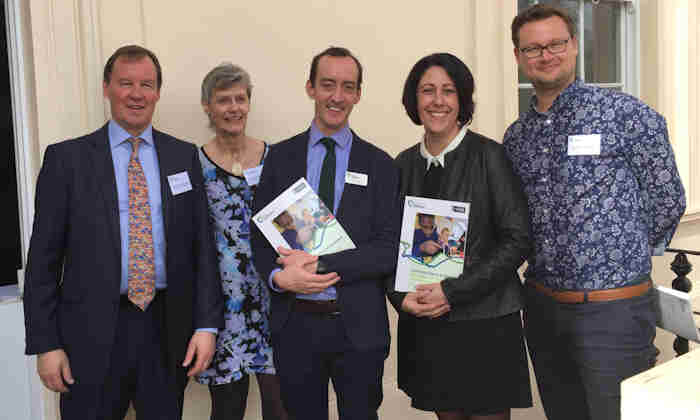Pioneering classroom approach is inspiring new generation of engineers
03 Apr 2017
Tinker Tailor Robot Pi…how to plug the skills gap in engineering

Creative learning pioneered by the University has been hailed in a national report as a model approach to get more young people into engineering – and to ultimately plug the UK’s skills gap in this critical sector.
The Tinker Tailor Robot Pi project, which has encouraged primary and secondary teachers to interpret what it means for pupils to learn through ‘tinkering’ has led to real strides being made to bring together science, computing and design technology lessons – and to inspire an interest for engineering in mainstream classrooms.
Incorporating the citizen science Manchester Robot Orchestra project, teachers co-created classroom experiences so that pupils developed ‘engineering habits of mind’, revealed the new education report.
Experts featured in the report ‘Learning to be an engineer’ call for more “tinkering” and "playful experimentation" as a means to encourage more young people to think like engineers and to consider this exciting field for their future careers.
The findings have been co-authored by Dr Lynne Bianchi, Director of Science and Engineering Education and Research Innovation Hub (SEERIH) at the University.
Dr Bianchi is a recognised expert in science and engineering education in schools, who together with Dr Jonathan Chippindall (SEERIH) contributed to the new research which has been published with the University of Winchester’s Centre for Real-World Learning (CRL) and the Royal Academy of Engineering.
“Our work has revealed that by taking an ambitious and creative approach to teaching in our schools we can inspire young people to think and learn as engineers,” said Dr Bianchi.
She added that the schools that adapted their teaching to encourage pupils to develop ‘engineering habits of mind’ reaped the benefits – and not just in science and maths, but in pupils’ communication skills, resilience and confidence to engage in class discussions, the research found.
Dr Rhys Morgan, Director of Engineering and Education at the Royal Academy of Engineering, added: “This report demonstrates some of the highly effective methods that we could use in schools to enhance young people’s passion for engineering, providing evidence of what really works in practice. By equipping teachers to nurture students in their engineering habits of mind, we can better develop their core skills and attract more of them into engineering careers in the future.”
